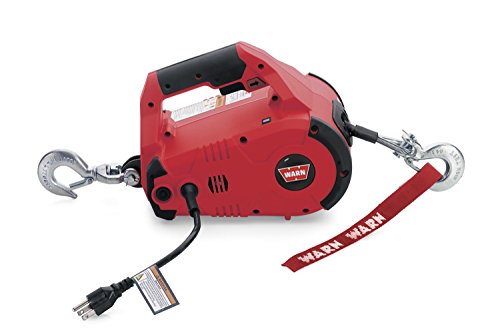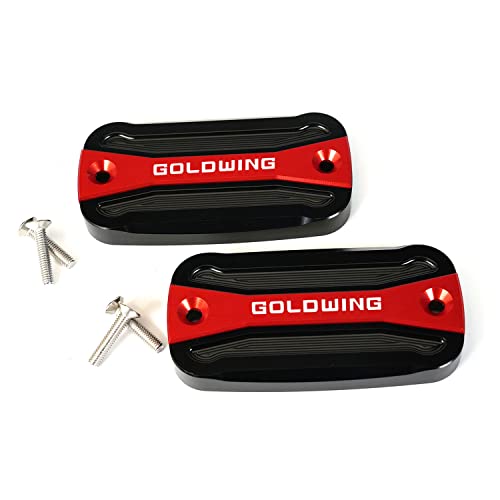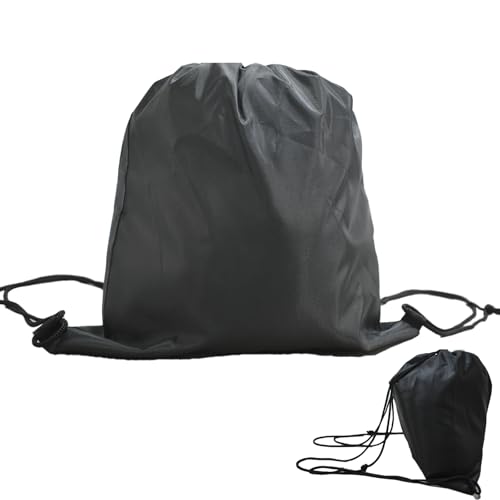hmmmmm strange deal now for sure
You are using an out of date browser. It may not display this or other websites correctly.
You should upgrade or use an alternative browser.
You should upgrade or use an alternative browser.
Front brakes are mushy, what should I try?
- Thread starter chuck c
- Start date

Help Support Classic Goldwings:
This site may earn a commission from merchant affiliate
links, including eBay, Amazon, and others.
slabghost
Well-known member
I redid a master that worked a few times then went mushy. New master fixed it.
wedoo2
Well-known member
Man, I invested the time to read through all of this with no conclusion. I think I'll go make breakfast and not eat it.
fivestring
Well-known member
What do your pads look like? I have the same mushy feel on my brakes even after putting on a new MC. Granted I need new lines but my apparently new pads on the front were coated with fork oil. Researching told me this will severely inhibit stopping power. I cleaned my pads to see if it makes a difference, just haven't tested it on the road yet. I just noticed this whole thread, nobody mentioned pad condition.
Following this thread with great interest. On my 83 the single front (left caliper) is spongy and weak. Many bleedings, etc. and was about to go stainless lines because that's all that's left. Disappointed to find the SS lines didn't solve your problem. Keep up the great work. Hope you find a solution. :yes:
Jorg
Jorg
Had tha same problem, Invested in a set of tha new fangled bleed screws with tha built in one way check ball. Couldn't believe how much air came out after I vacuum bled em till I was blue in tha face :BigGrin: I always tie tha brake lever down at least overnight after a master cly rebuild. It gets everbody used to each other I guess but it helps tha brakes feel better no kidding.

$38.79
$45.95
Triumph Bonneville T100, T120, Bobber, Thruxton, Street Twin, Cup & Scrambler (2016 - 2017) Haynes Repair Manual (Haynes Powersport)
GoodwillBooks

$72.83
Honda GL 1800 Gold Wing 2001-2010 Repair Manual (Haynes Service & Repair Manual)
Chrome World

$48.99
$55.00
HONDA GL1000 & GL1100 GOLDWING MOTORCYCLE REPAIR SHOP & SERVICE MANUAL For 1975, 1976, 1977, 1978, 1979, 1980, 1981, 1982, 1983, 1984 & 1985 - NEW, 304 Pages
Classic Automotive Repair Shop & Restoration Manuals

$10.19
$11.99
ZALALAS Travel Duffle Bag,96L Extra Large Duffel Bag Lightweight,Waterproof Duffel Bag for Men Women,Black
ZALALAS US

$150.00
1984 Honda Gold Wing GL1200 Factory Service Manual Dealer GoldWing Shop Repair Workshop
GLAVIS ENTERPRISES

$39.95
$59.95
Honda GL1800 Gold Wing 1800 (01-10) Haynes Repair Manual (Paperback)
Haynes Repair Manuals

$99.00
$129.00
Sena Universal Helmet Clamp Kit for CB/Audio of Honda Goldwing (20S, 20S EVO, 30K)
ProRidersClub

$39.95
$49.95
Honda GL1500 Gold Wing Motorcycle (1993-2000) Service Repair Manual
Haynes Repair Manuals

$49.00
WILD HEART Waterproof Motorcycle Duffel Bag PVC500D With Rope Straps and Inner Pocket 40L 66L 100L for Kayaking, Camping, Boating,Motorcycle
ZHONGSHAN WILD FRUIT OUTDOOR

$231.99
$287.99
WARN 885000 PullzAll Corded 120V AC Portable Electric Winch with Steel Cable: 1/2 Ton (1,000 Lb) Pulling Capacity , Red
Amazon.com

$48.99
COMPLETE HONDA GL1800 GOLD WING MOTORCYCLE REPAIR SHOP & SERVICE MANUAL For Years 2001, 2002, 2003, 2004, 2005, 2006, 2007, 2008, 2009 & 2010
Classic Automotive Repair Shop & Restoration Manuals
Try checking for clearance with a feeler gauge between outside of the brake disc and both caliper holders
should be 0.028 front and back.To much clearance here can cause mushy brake syndrome.
https://classicgoldwings.com/forum/gallery/image_page.php?album_id=10211&image_id=29504
should be 0.028 front and back.To much clearance here can cause mushy brake syndrome.
Mushy brake syndrome and excessive Clearances
Try checking for clearance with a feeler gauge between outside of the brake disc and both...
So I've been riding the VFR the last few months and I've been dreading switching back to the wing because of how bad the front brake works. This thread has inspired me to try to solve it again.
The symptom is a mushy lever that I can squeeze to the bar and a weak front brake. I've tried bleeding many times in many ways with no improvements. I was going to purchase SS lines as I had convinced myself that it was the only thing left.
A previous poster suggested that you could safely pinch the line at the caliper without damage which I had always been afraid to try. When I pinched the line at the caliper the brake lever was rock solid. SS lines would have been zero improvement as these original rubber lines had no noticable flex. Now I'm positive it is the caliper.
I pushed the pistons into the caliper with "C" clamps and bled the caliper straight up and down and with the pistons firmly locked all the way in I tested it and still had a mushy lever. Pinch the brake line and the lever is rock solid.
(All following pictures stolen from the web)

Now I'm thinking that with the banjo in the middle of the caliper I'm really not bleeding through the bottom cylinder so I keep the top cylinder clamped and pump the bottom out, then use the c-clamp to force the bottom back into the cylinder. All fluid bleed this way is the bottom cylinder. Again, mushy lever.
So what's left? Air in the banjo fitting?
Does anyone have pictures on the inside of the cylinders. The only one I have found makes it look like you can't bleed the bottom properly unless there is a transfer hole between the cylinders that I can't see.

Can anyone confirm that there is a transfer hole?
Thanks.
The symptom is a mushy lever that I can squeeze to the bar and a weak front brake. I've tried bleeding many times in many ways with no improvements. I was going to purchase SS lines as I had convinced myself that it was the only thing left.
A previous poster suggested that you could safely pinch the line at the caliper without damage which I had always been afraid to try. When I pinched the line at the caliper the brake lever was rock solid. SS lines would have been zero improvement as these original rubber lines had no noticable flex. Now I'm positive it is the caliper.
I pushed the pistons into the caliper with "C" clamps and bled the caliper straight up and down and with the pistons firmly locked all the way in I tested it and still had a mushy lever. Pinch the brake line and the lever is rock solid.
(All following pictures stolen from the web)

Now I'm thinking that with the banjo in the middle of the caliper I'm really not bleeding through the bottom cylinder so I keep the top cylinder clamped and pump the bottom out, then use the c-clamp to force the bottom back into the cylinder. All fluid bleed this way is the bottom cylinder. Again, mushy lever.
So what's left? Air in the banjo fitting?
Does anyone have pictures on the inside of the cylinders. The only one I have found makes it look like you can't bleed the bottom properly unless there is a transfer hole between the cylinders that I can't see.

Can anyone confirm that there is a transfer hole?
Thanks.
slabghost
Well-known member
Squeeze the handle to the bar and tie it there for 12 hours or more. That will allow air in the lines to burp into the master.
[url=https://classicgoldwings.com/forum/viewtopic.php?p=179705#p179705:1k6gwbb4 said:slabghost » Fri Sep 02, 2016 7:57 am[/url]":1k6gwbb4]
Squeeze the handle to the bar and tie it there for 12 hours or more. That will allow air in the lines to burp into the master.
Already tried that. Unless there is air trapped at the banjo connection which won't come out this way I would have to consider the lines as bled since testing with a pinched line at the caliper makes the lever solid.
Jorg
- Joined
- Dec 3, 2009
- Messages
- 22,446
- Reaction score
- 265
- Location
- Van Nuys Ca.
- My Bike Models
- 1983 Interstate
2018 KLR 650
2018 BMW S1000 RR
- My Bike Logs forum link
- https://classicgoldwings.com/forums/dan-filipi.122/
I'm not so sure clamping the line off at the master is telling much. It won't have to push any kind of volume and might not tell if the master seals are working like they have to.
Just thinking out loud I guess.
Could a "firm" lever be different from one person to the next.
Mine feels what I think is firm, but I can also pull the lever to the grip trying hard enough.
Stopping power isn't great but it also has old pads that have gotten soaked with fork oil from leaking seal and rotors are glazed.
Just thinking out loud I guess.
Could a "firm" lever be different from one person to the next.
Mine feels what I think is firm, but I can also pull the lever to the grip trying hard enough.
Stopping power isn't great but it also has old pads that have gotten soaked with fork oil from leaking seal and rotors are glazed.
[url=https://www.classicgoldwings.com/forum/viewtopic.php?p=179707#p179707:3ly11e3l said:dan filipi » Fri Sep 02, 2016 8:33 am[/url]":3ly11e3l]
I'm not so sure clamping the line off at the master is telling much. It won't have to push any kind of volume and might not tell if the master seals are working like they have to.
Just thinking out loud I guess.
Could a "firm" lever be different from one person to the next.
Mine feels what I think is firm, but I can also pull the lever to the grip trying hard enough.
Stopping power isn't great but it also has old pads that have gotten soaked with fork oil from leaking seal and rotors are glazed.
I'm clamping the lines off at the caliper and when I do the lever is rock hard, like it is welded in place. When I remove the clamp I can just about squeeze the lever to the bar. I've tried new SBS pads and de-glazing the disk with no improvement. When I have the caliper pinched off I have a brake lever like the VFR.
- Joined
- Dec 3, 2009
- Messages
- 11,031
- Reaction score
- 299
- Location
- Kingsport, Tennessee
- My Bike Models
- Former '82 GL1100 "The Slug"
Jorg, this is the same condition Chuck is seeing.
[url=https://classicgoldwings.com/forum/viewtopic.php?p=179713#p179713:26s650xs said:mcgovern61 » Fri Sep 02, 2016 9:57 am[/url]":26s650xs]
Jorg, this is the same condition Chuck is seeing.
I know. That's what got me going. When he pinched off the line at the caliper a light bulb came on for me. I always assumed I had flex in my 35 year old lines but now I think it's related to a stubborn air bubble trapped in the caliper or banjo connection. I'm going to go at it again this weekend.
Jorg
Terry
Well-known member
I'll suggest this once more, it may have been overlooked.
I have flushed, bled and rebuilt a lot of motorcycle braking systems and this method is fail proof for me with not tying the lever or pedal down overnight.
I also flushed, bled, and repadded a GL 1800 with linked brakes this way and they worked perfectly although many said they were a nighmare to bleed.
Lately I rebuilt calipers, master cylinders, and installed new brake lines and new pads on an 82 GL 1100 and a 77 GL 1000 and they both worked great.
There was no way you could pull the lever all the way into the grip and they had good feel too.
My method: I do use a Mity Vac but also a simple one way valve in the hose that goes between it and the bleeder.
I as a double precaution back out the bleeder and apply thick grease to the threads to prevent possible ait sucking back in.
The Mity Vac could be left out and bleed by the old school pump up and hold method too.
This has never failed me on auto's or bike, once and done deal.
I have flushed, bled and rebuilt a lot of motorcycle braking systems and this method is fail proof for me with not tying the lever or pedal down overnight.
I also flushed, bled, and repadded a GL 1800 with linked brakes this way and they worked perfectly although many said they were a nighmare to bleed.
Lately I rebuilt calipers, master cylinders, and installed new brake lines and new pads on an 82 GL 1100 and a 77 GL 1000 and they both worked great.
There was no way you could pull the lever all the way into the grip and they had good feel too.
My method: I do use a Mity Vac but also a simple one way valve in the hose that goes between it and the bleeder.
I as a double precaution back out the bleeder and apply thick grease to the threads to prevent possible ait sucking back in.
The Mity Vac could be left out and bleed by the old school pump up and hold method too.
This has never failed me on auto's or bike, once and done deal.
[url=https://classicgoldwings.com/forum/viewtopic.php?p=179718#p179718:3kmr1qhi said:Terry » Fri Sep 02, 2016 10:23 am[/url]":3kmr1qhi]
I'll suggest this once more, it may have been overlooked.
I have flushed, bled and rebuilt a lot of motorcycle braking systems and this method is fail proof for me with not tying the lever or pedal down overnight.
I also flushed, bled, and repadded a GL 1800 with linked brakes this way and they worked perfectly although many said they were a nighmare to bleed.
Lately I rebuilt calipers, master cylinders, and installed new brake lines and new pads on an 82 GL 1100 and a 77 GL 1000 and they both worked great.
There was no way you could pull the lever all the way into the grip and they had good feel too.
My method: I do use a Mity Vac but also a simple one way valve in the hose that goes between it and the bleeder.
I as a double precaution back out the bleeder and apply thick grease to the threads to prevent possible ait sucking back in.
The Mity Vac could be left out and bleed by the old school pump up and hold method too.
This has never failed me on auto's or bike, once and done deal.
I will try vacuum bleeding as well.
I've not seen anyone mention the measurements of the caliper pistons or bores. Per my factory manual there is a limitation to these 2 components. The only reason I mention them is that when the line is pinched off, no fluid goes into the caliper. I believe that the fluid return system is inside the caliper and maybe if the components get sloppy they allow fluid to return to MC when it shouldn't? Couldn't find a diagram of what goes on with brake fluid in the system. Just some more info to muddy the water?
slabghost
Well-known member
As there is only one line. Pressure in should not be fed back in any way.
- Joined
- Jan 27, 2013
- Messages
- 9,855
- Reaction score
- 34
- Location
- Brisbane Australia
- My Bike Models
- 1981 GL1100 “Rats Nest”
1998 GL1500c Val
1987 CBR1000f “The Pig”
1991 CBR1000f Red
My quick fix for the Rats Nest was to fit a smaller bore CBR MC that has given me the pressure and feel that I wanted, also an adjustable lever position. With my mates Ducati Dhama I did the same thing with his Brembo MC with similar large single pot calipers to my 81. He finally had great front brakes until he switched back to the original as he couldn't live with a Honda part on his fully restored Ducati. :smilie_happy:
- Joined
- Dec 3, 2009
- Messages
- 11,031
- Reaction score
- 299
- Location
- Kingsport, Tennessee
- My Bike Models
- Former '82 GL1100 "The Slug"
Well, I can tell you from first hand experience that Chuck and I did use the might vac, re-taped the bleeder screw threads and also used a bleeder bottle filled with fluid to be sure any pulling back would only be fluid.[url=https://classicgoldwings.com/forum/viewtopic.php?p=179718#p179718:30cl23cs said:Terry » Fri Sep 02, 2016 11:23 am[/url]":30cl23cs]
I'll suggest this once more, it may have been overlooked.
My method: I do use a Mity Vac but also a simple one way valve in the hose that goes between it and the bleeder.
I as a double precaution back out the bleeder and apply thick grease to the threads to prevent possible ait sucking back in.
The Mity Vac could be left out and bleed by the old school pump up and hold method too.
Granted, no one way valve or speed bleeders, but it is really strange to pinch off the hose right before the caliper and have the handle go rock hard. Let go of the hose, push fluid and/or vacuum fluid, and it still has a mushy feel compared to mine.







































